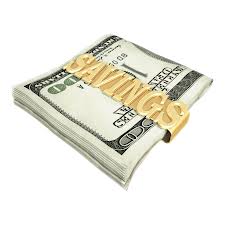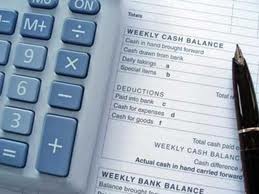 Let’s say you run a hedge fund and some investor comes to you and says, “Oh, things are terrible. Look at all the money you lost for me last year. I know you’re doing great this year and you’ve made it all back that you lost last year, but I don’t want to run that risk. So, I want to give you my money, a billion dollars, I want to get these superior returns you seem to earn, but you have to guarantee that you don’t lose me a penny. I don’t want any risk.
Let’s say you run a hedge fund and some investor comes to you and says, “Oh, things are terrible. Look at all the money you lost for me last year. I know you’re doing great this year and you’ve made it all back that you lost last year, but I don’t want to run that risk. So, I want to give you my money, a billion dollars, I want to get these superior returns you seem to earn, but you have to guarantee that you don’t lose me a penny. I don’t want any risk.
I want a principal guarantee that when I give you a hundreds dollars, you’ll always return my hundred dollars and hopefully much more, but never less than a hundred dollars.” So, is there any way to do that? You know that you’ve got a great strategy, but of course it’s risky. You could lose money. You’ve lost money a bunch of times before. So, how can you guarantee the guy that he’ll get all his money back and still have room to run your strategy? Well, it sounds like you can’t do it, but of course a lot of people want to invest that way, so there must be a way to do. So, you’ll figure out – we’ll learn how to do that.
So, three more short ones. A scientist discovers a potential cure for AIDS. If it works, he’s going to make a fortune. He started a company. He’s a Yale scientist, he’s – medical school, started this startup company. Yale, of course, is going to take all his profits, but anyway it’s his startup company and if his thing really works, he’s going to make a fortune. If it doesn’t work, it’s going to be totally zero. You calculate, and let’s say you believe your calculation, that the expected profits that he’ll make if it works, the probability of it working times the profit, that expected profit is equal to the profits of all of General Electric.
Should his company be worth more than General Electric, the same as General Electric, or less than General Electric since it’s got the same expected profits? Well, I can tell you the answer to this one because I think most of you would think, first you’d think, “Well, maybe the same.” Then you’d say, “Well, this AIDS thing, it’s so risky. It’s either going to be away up here or nothing. And that’s so risky, and General Electric is so solid, probably General Electric is worth more.” But the answer is the AIDS Company is worth more. So, how could that be?
So, another question, suppose you believed in this efficient market stud and you rank all the stocks at the end of this year from top to bottom of which stock had the highest return over the year. It’s 2010, let’s say 2010, this year’s a weird year. So, let’s say you do it in 2010. All the stocks the highest return to the lowest return. Now, suppose you did the same thing in 2011 with the same stocks?
Would you expect to get the same order, or the reverse order, or random order? Now again, if you believe in efficient markets and the market’s really functioning the prices are fair and all, I’ll bet most of you will say, you won’t know, but you might say it should be random the next time because firms only did better or worse by luck, but that’s not right either. So, you’re going to know how to answer that question by the end of the class.
One last one, the Yale endowment over the last fifteen years has gotten something like a fifteen percent annualized return. A hedge fund, that I won’t name, has gotten eleven percent over the last fifteen years counting all its losses and stuff like that. So, is it obvious that the Yale endowment has done better than the hedge fund? Would you say that the Yale manager is better than the hedge fund manager? Its return was fifteen percent. The hedge fund only got eleven percent. So, I’m asking the question, and I would say that David Swensen would think about it the same way I think about it.
So, suppose I even told you that the Yale hedge fund had lower volatility – the Yale hedge fund? – the Yale endowment had lower volatility than the hedge fund, which it surely does, would that convince you now that the Yale endowment made been managed better than the hedge fund? Well, we’re going to answer this question again, and you’re going to see that the answer’s a little surprising. It won’t be so surprising – I wouldn’t have brought it up otherwise. But anyway, that’s the kind of thing that in finance you’re taught to think about.









